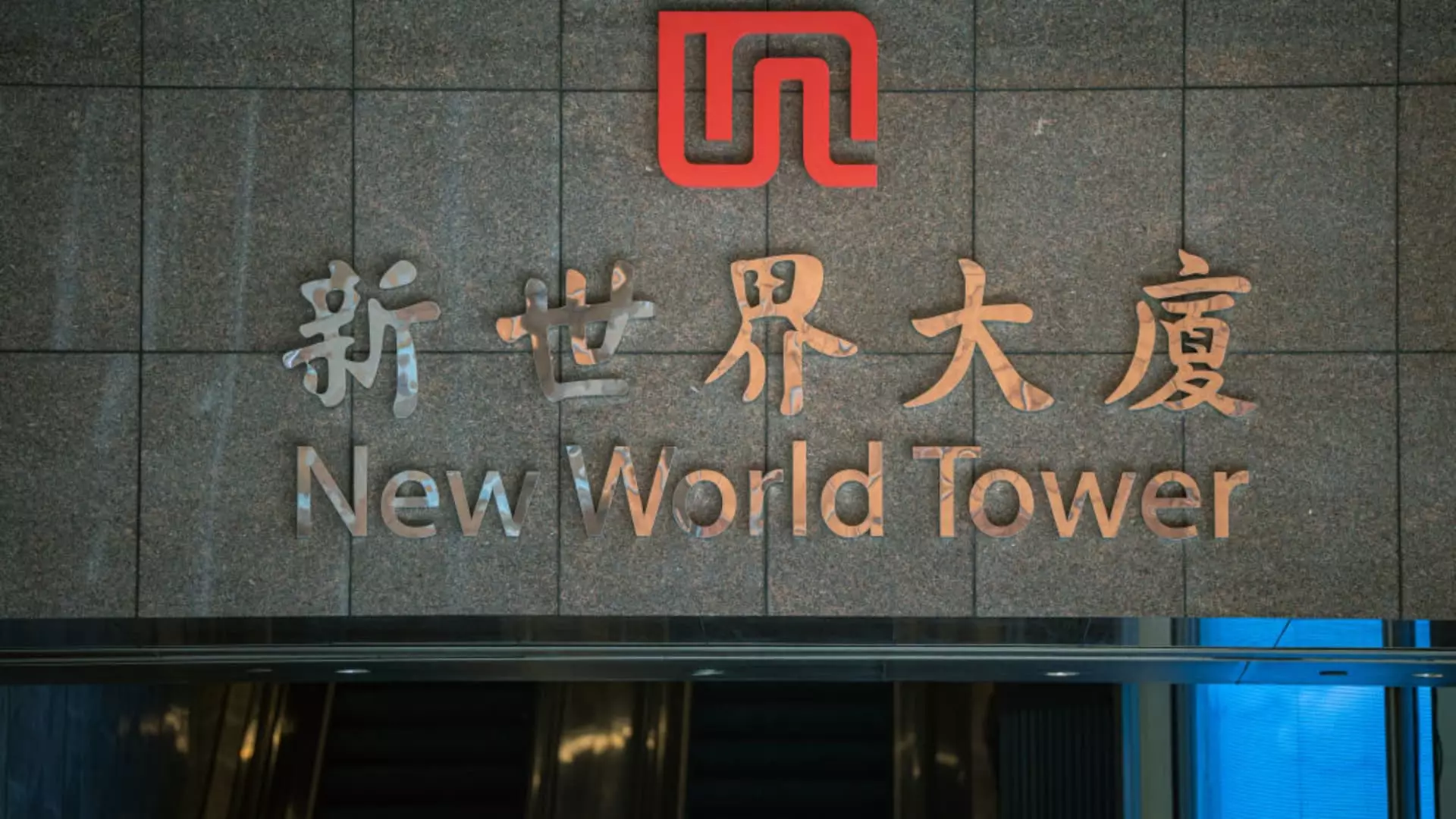In a significant move signaling potential rejuvenation, shares of New World Development (NWD) soared by 23% following the resignation of Adrian Cheng, a prominent figure in the company and a member of its founding family. The abrupt trading halt on Thursday, issued in advance of the announcement, reflects the immediacy and importance of Cheng’s decision, as he plans to channel his energies into public service and personal endeavors. This pivot not only raises questions about the company’s internal dynamics but also highlights investor sentiment towards shifts in leadership amid challenging market conditions.
A Fresh Leadership Direction
Taking the helm as CEO is Eric Ma Siu-Cheung, marking a striking shift by introducing an external leadership figure in a family-controlled enterprise that has traditionally favored intra-familial succession. Analysts view this appointment as a progressive step, suggesting that NWD is recognizing the need for diversified leadership perspectives to navigate the complexities of today’s real estate landscape, particularly in Hong Kong, where the market has been beset by a series of economic challenges.
NWD’s recent financial disclosures indicate a grim forecast, with expected losses reaching between HK$19 billion and HK$20 billion for the fiscal year ending in June. These figures are alarming, especially in light of ongoing issues such as declining sales, investment losses, and concerns regarding elevated debt levels. The state of the property market remains precarious, compounded by broader economic strains affecting both Hong Kong and mainland China. The contrast between the sharp rise in share prices and the surrounding financial difficulties illuminates the broader complexities at play in the local economy.
The situation at NWD raises pertinent questions about corporate governance in the region. As Alicia Garcia-Herrero, chief economist for Asia Pacific at Natixis, remarked, the entrenched practice of promoting family figures in leadership roles may hinder effective management, particularly in challenging times. This scenario invites deeper scrutiny of leadership practices within Asia’s conglomerates as market pressures continue to mount. The emphasis on merit-based management may pave the way for a corporate landscape that prioritizes resilience and adaptability.
Underlying Market Trends and Stimulus Measures
The recent stock surge can also be attributed to broader market movements following proactive stimulus measures by China’s central bank aimed at invigorating the economy. In conjunction with government pledges to stabilize the faltering property market, NWD’s share rally is intertwined with national economic strategies. Leaders’ commitments to enhance fiscal and monetary support speak to a unified effort to galvanize growth and restore confidence in the real estate sector—a critical pillar of the regional economy.
As New World Development navigates this pivotal moment, it stands at a crossroads between tradition and transformation. Adrian Cheng’s exit coupled with Eric Ma’s entrance heralds a potential shift towards a new corporate ethos focused on adaptability in the face of adversity. Whether this change will ultimately lead to a sustainable recovery for NWD remains to be seen. However, the keen interest from investors and attention to corporate governance reforms underline a growing recognition of the critical role that management efficacy plays in driving success amid uncertainty.

